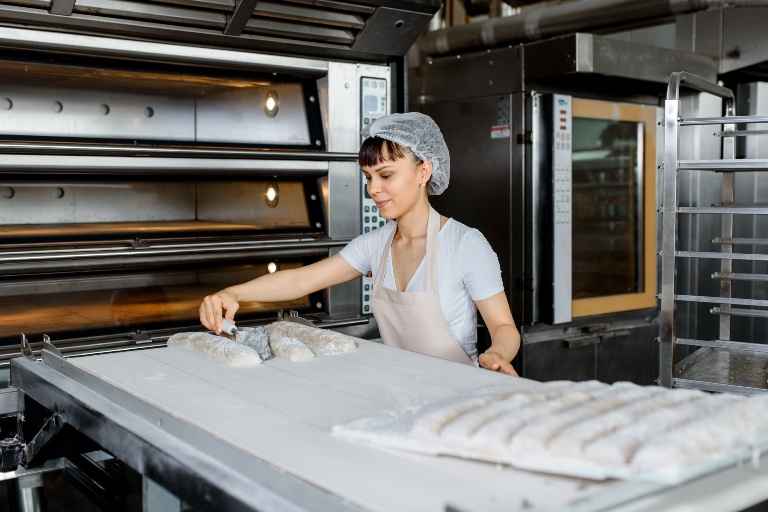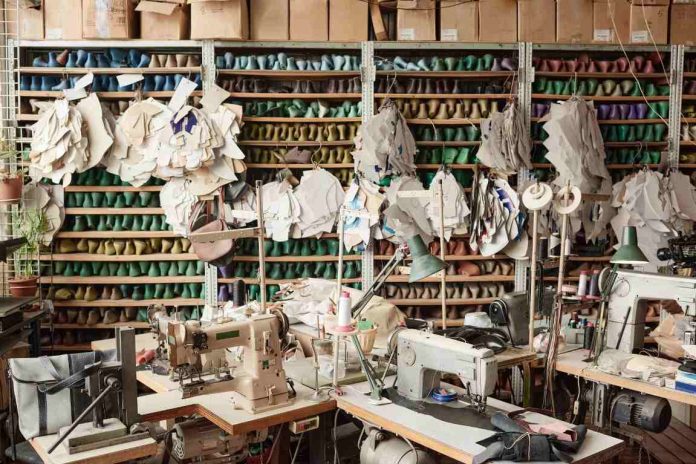If you’re for a manufacturing company looking for suppliers, you can turn to job shop manufacturing. While manufacturing is a familiar trade, few know about job shops and what they can do for other businesses.
The processes of job shops require a unique setting because they manufacture different components for different industries. In this article, you’ll learn about the basics of job shop manufacturing and how they can help your business.
Table of Contents
What Is A Job Shop?
Job shops are businesses that create custom parts for other businesses. Job shops also include different types of various companies. They could be a machine tool shop, commercial printing or a machining centre. Job shops could also be other manufacturers that supply small batches or lot sizes of customized components.
Job shops manufacture different uniquely designed products and require specific processing. Some examples of job shops are companies that make furniture, restaurants or businesses that create prototypes. Modern processes include using job shop management software and the latest equipment to deliver timely orders.
The Job Shop Manufacturing Process
Job shop manufacturing utilizes methods that produce various different-sized products and are flexible when accepting orders. Job shops are not specialized, allowing them to take on requests for custom specifications or designs of products to cater to different needs.
The various products they manufacture have different operating times. They can also have varying sequences in the manufacturing process, among other manufacturing issues. When finished, the shops release these in batches, or ‘jobs’.
Job shops distinguish themselves as facilities that use tools and machines. They also have different workstations where staff can perform various tasks when manufacturing a specific product. They produce non-standardized products on shop floors with a unique setup and process steps.
Companies with manufacturing facilities move items differently to the following process. Often, that might mean returning to the same workstation a few times. The process will depend on the requirements of manufacturing.
Job shop manufacturers can sell products directly to individual customers, produce parts for businesses or deal with wholesalers. Job shops employ just-in-time (JIT) workflows in their production to create the orders of customers.

What Is Just-In-Time Manufacturing (JIT)?
This kind of manufacturing takes advantage of resources to the fullest and ensures waste reduction in the process. JIT manufacturing comes from a Japanese management philosophy that various manufacturing industries use today.
Through JIT manufacturing, job shops can minimize the time between initiating and completing the production. This process then reduces the response times for suppliers and customers, using fewer resources and keeping the cost of materials to a minimum.
Job shops are often small companies or businesses, so they must adopt a process allowing them to use resources in the best ways possible.
Job Shop Manufacturing Example
Many manufacturers use job shop manufacturing. To better understand the job shop manufacturing process, here is an example of its steps until the completion of the items:
Step 1: Design Process
The products or components are tailored per customer. The process in job shop manufacturing involves personalizing items according to design and specifications according to the agreed setup.
Customers can choose from a vast range of materials available and the type of finish they want for the parts or products. A blueprint is made according to preferred measurements, and production begins. Customers can select through variations with job shops offering painting or etching on specific items.
Step 2: Material Preparation
Job shops will sometimes order certain materials first, depending on availability. Once they arrive, the material will undergo cutting or any modification according to the instructions or requirements of the customer.
For instance, metalworking businesses must first cut and form the material into a desired shape in a dedicated area or workstation. Workstations used for a specific purpose help job shops avoid backlogs or delays in orders.
Essentially, a step-by-step process helps them focus on the manufacturing process. Here’s a sample process with steps some job shops might follow:
- Depending on the product, metals may underdo rolling and welding to create strips and joined by welding.
- The next step in the process is tooling according to the requirements of the customer’s order.
- The following process is metal spinning, where the shop creates metal discs according to the required specifications
- Finishing and cleaning follow and involve removing burrs and polishing the product surfaces. This step includes a secondary fabrication if the product needs holes or paintwork.
Most shops follow their procedures. But most should follow the International Organization for Standardization (ISO), a quality management standard requiring strict product inspection under various modifications.
Step 3: Final Inspection And Delivery
The final inspection ensures that the product has been imbued with the correct measurements and will include a visual inspection to locate abnormalities. After inspection, they are correctly packed and shipped to the customers.
Packing may also have its workstation area to make delivery and transportation faster. Options for customization mean that they undergo different orders. Processes will differ according to the product type because job shops use different materials. They’ll also use various tools and equipment, creating distinct production and delivery timelines.
Takeaway
Businesses work with job-shop manufacturing businesses to produce small batches of components for other companies. They offer customization that makes them flexible with the orders they accept.
Job shops use JIT manufacturing, which allows them to use resources to the maximum benefit while reducing waste. Overall, a job shop manufacturing process will involve different steps such as designing, material preparation, final inspection and packaging, depending on the products they manufacture.














